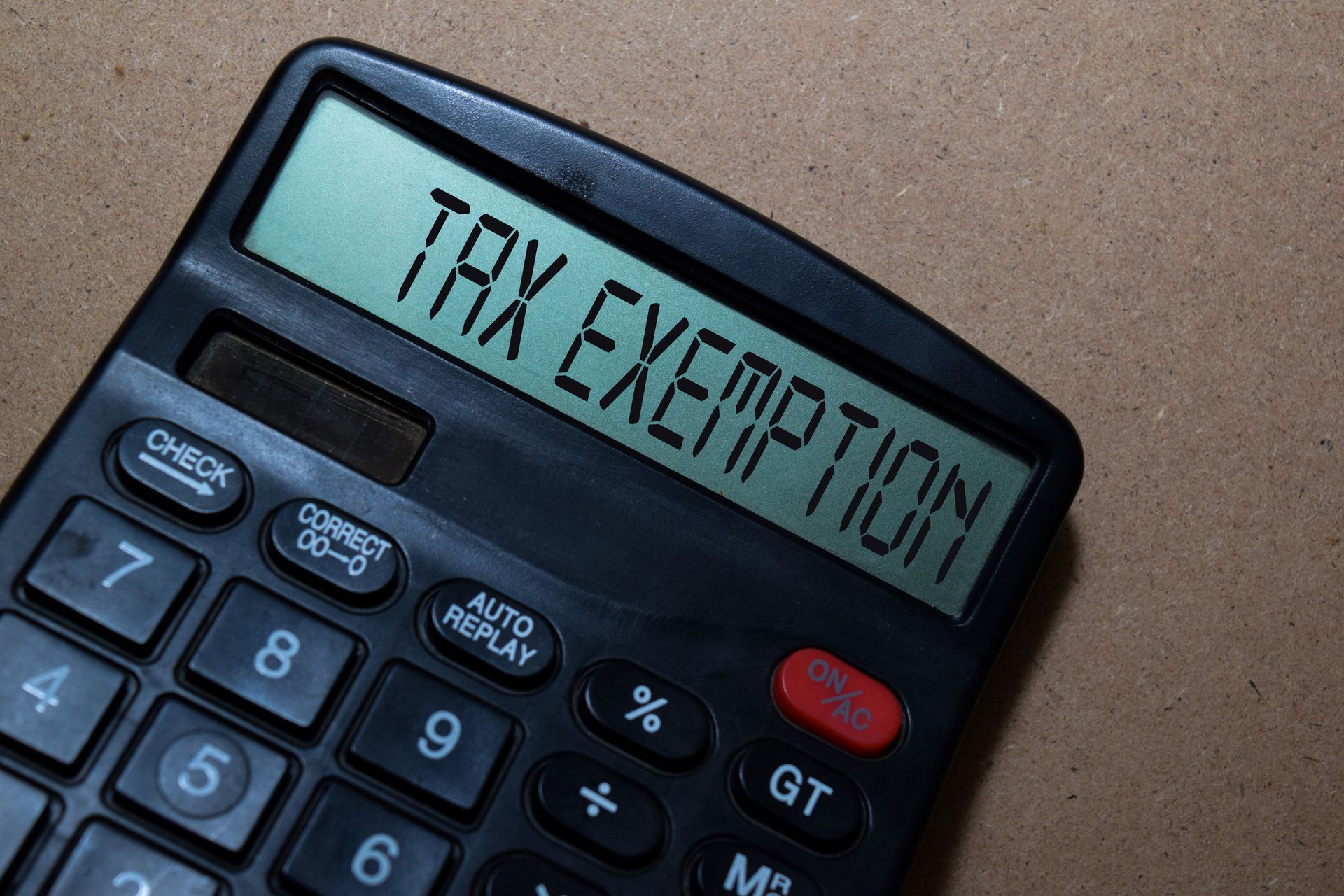Why You Might Consider Filing for an Extension on Your Federal Taxes
Tax season can be a stressful time for many, with the looming deadline often causing a rush to gather necessary documents, complete forms, and ensure everything is in order to avoid penalties.
However, if you're finding it difficult to meet the April deadline, you have the option to file for an extension.
This post explores several compelling reasons why you might consider this approach, providing valuable insights that can help you make an informed decision.
1. Avoiding Last-Minute Errors
When you're rushing to meet the tax deadline, the chances of making mistakes increase significantly. Mistakes on your tax return can lead to delays in processing, potential audits, and even penalties.
By filing for an extension, you give yourself additional time to carefully review your information, ensuring accuracy and completeness. This extra time can help you avoid costly errors that could have long-term consequences.
2. Gathering Missing Documentation
If you find yourself missing essential documents—such as W-2s, 1099s, or important receipts—you may struggle to complete your tax return accurately.
Filing for an extension allows you more time to gather all necessary documentation, ensuring you can provide the IRS with a complete and accurate picture of your financial situation.
This is particularly useful if you have multiple sources of income or complicated financial arrangements.
3. Dealing with Complex Financial Situations
For individuals and businesses with complex financial situations, the standard tax deadline can feel particularly daunting. This complexity may arise from owning multiple properties, investments, or running a business.
Filing an extension can provide the additional time needed to consult with financial advisors or accountants, allowing for a thorough review of your financial records and ensuring that every detail is correctly reported.
4. Handling Personal or Family Emergencies
Life is unpredictable, and sometimes personal or family emergencies can make it impossible to focus on tax preparation.
Whether it's a medical emergency, a family crisis, or any other significant event, filing for an extension can provide the necessary breathing room to address these issues without the added stress of impending tax deadlines. Remember, taking care of your well-being and that of your family should always come first.
5. Avoiding Underpayment Penalties
If you suspect you might owe additional taxes but are unsure of the exact amount, an extension can give you the time to accurately calculate your liability.
It's important to note, however, that while an extension grants you more time to file your return, it does not extend the time to pay any taxes owed.
To avoid underpayment penalties, you should estimate your tax liability as accurately as possible and make a payment by the original deadline.
6. Maximizing Deductions and Credits
Taking the time to thoroughly review your tax situation can reveal potential deductions and credits you might otherwise overlook in a rush. For example, contributions to retirement accounts, education expenses, and certain business deductions require careful documentation and calculation.
Filing for an extension allows you to maximize these opportunities, potentially reducing your overall tax liability.
7. Making the Most of Professional Assistance
Many taxpayers rely on professional tax preparers to help them file their returns. However, tax consultant is often extremely busy as the deadline approaches, which can limit the amount of time they can dedicate to each client.
By filing for an extension, you give your tax preparer the opportunity to devote more time and attention to your return, ensuring it is completed accurately and efficiently.
8. Planning for Future Tax Years
Taking the time to thoroughly review and understand your tax situation can provide valuable insights for future planning.
Filing for an extension allows you to work with financial advisors to develop strategies that can minimize your tax liability in future years.
This proactive approach can lead to better financial health and stability over the long term.
How to File for an Extension: Detailed Steps
If you've weighed the benefits and decided that filing for an extension is the right choice for you, here's a step-by-step guide to help you through the process:
Step 1: Determine Your Filing Deadline
The standard due date for filing an extension is the same as the tax filing deadline, which is typically April 15th. In some years, this date may vary slightly if it falls on a weekend or holiday. Verify the exact deadline for the current tax year to ensure you file your extension on time.
Step 2: Gather Necessary Information
Before you begin the process, make sure you have all the necessary information at hand. This includes:
- Your name (and your spouse’s name if filing jointly)
- Social Security numbers
- Estimates of your total tax liability for the year
- Amount of taxes already paid
- Any other relevant financial information
Step 3: Decide on Electronic or Paper Filing
You can choose to file for an extension either electronically or by mailing a paper form. Both methods are valid, but electronic filing is generally quicker and minimizes the risk of errors.
Step 4: Complete IRS Form 4868
To request an extension, you need to fill out IRS Form 4868, "Application for Automatic Extension of Time to File U.S. Individual Income Tax Return." This form can be completed either online or by hand. It requires basic information about you and an estimate of your tax liability.
Step 5: Submit Form 4868
- Electronically: If you prefer electronic filing, you can use the IRS Free File service or commercial tax software. These platforms will guide you through the process step-by-step. Once completed, submit the form electronically.
- By Mail: If you choose to mail in your form, make sure you send it to the address specified in the form instructions. Be sure to send it well ahead of the deadline to account for any potential postal delays.
Step 6: Pay Any Estimated Taxes
While filing for an extension gives you more time to submit your return, it does not extend the time to pay any taxes due.
To avoid penalties and interest, you should estimate your tax liability as accurately as possible and pay the estimated amount by the original deadline.
This can be done via electronic funds withdrawal, credit or debit card, or by mailing a check or money order with your Form 4868.
Step 7: Confirmation and Record-Keeping
After submitting Form 4868, you should receive a confirmation if filed electronically.
If filed by mail, keep a copy of the form and proof of mailing (such as a certified mail receipt) for your records.
This documentation serves as proof that you requested an extension on time.
Step 8: Complete and Submit Your Tax Return by the Extended Deadline
With the extension, you generally have until October 15th to complete and file your tax return.
Use the extra time to ensure all information is accurate and to gather any missing documentation.
Submit your completed tax return by the extended deadline to avoid any penalties for late filing.
By following these steps, you can effectively manage the process of filing for a tax extension, ensuring you have the necessary time to prepare a complete and accurate return.
Conclusion
Filing for an extension on your federal taxes can be a strategic decision that provides numerous benefits.
Whether you're dealing with complex financial situations, personal emergencies, or simply need more time to ensure accuracy, an extension can offer the breathing room you need.
By understanding the reasons for filing an extension and how to do so correctly, you can take control of your tax situation and avoid unnecessary stress.
And if you need professional assistance, don't hesitate to reach out to our team of experienced tax advisors.
We're here to help you navigate the complexities of tax season with confidence and ease.
Ready to File for an Extension? Let Sela Tax & Accounting LLC Help!
Navigating tax season can be overwhelming, but you don't have to do it alone. At Sela Tax & Accounting LLC, our team of experienced tax professionals is here to guide you through every step of the process.
Whether you need assistance filing for an extension, managing complex financial situations, or planning for future tax years, we've got you covered. Don't wait until the last minute!
Contact us today to schedule a consultation and take the stress out of tax season. Let Sela Tax & Accounting LLC help you achieve peace of mind and financial stability.




